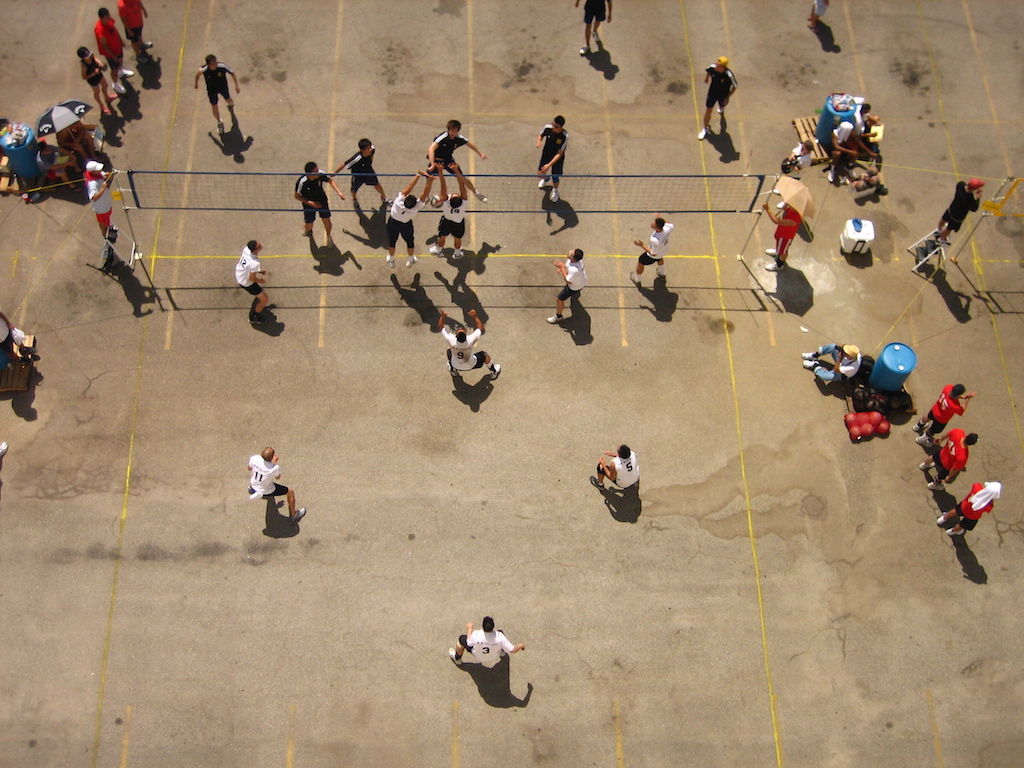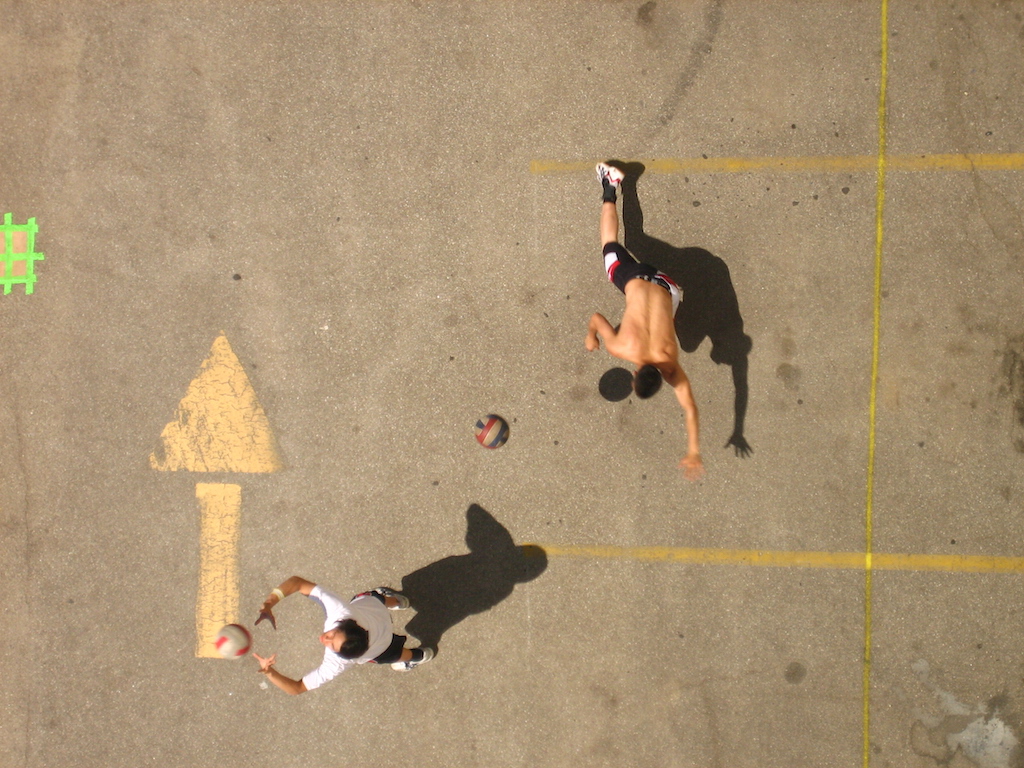Like this article? rabble is reader-supported journalism. Chip in to keep stories like these coming.
Chow fun and cha siu bao aren’t just names for Chinese dishes (fried noodles and pork bun, FYI), they are also names for moves in a unique streetball game played within Chinese communities in North America.
With strict rules as to player membership and unique manoeuvres, 9-man is a volleyball game like no other.
“[Regular volleyball] is sissyball,” a participant dismissively declares in the documentary 9-Man, by U.S. director Ursula Liang.
Liang’s award-winning documentary unravels the game, the dedicated players, the coaches and the dark history of its creation. The 90-minute film is chockfull of passionate personalities, deep history and gripping action as teams play tournaments to reach the annual Labour Day championship.
Though seemingly secretive, 9-man is played in plain sight on the asphalt alleyways of Chinatowns in places such as San Francisco, Boston, Washington, D.C., New York, Montreal and Toronto (for those in the Big Smoke, there is a champion team living in your midst).
Using an over-sized court, with moves such as cradle pass and scissor and positions like “suicide,” it is fast, furious and full of fanatics.
The film covers much ground and is a thought-provoking ride through a game that has been around in North America for more than 60 years. As the film explains, it’s believed 9-man originated from the province of Toishan in China and male migrants to the U.S. brought the game over.
“We played it like crazy. It relieved the stress,” recalls one old timer, who describes the difficult early years in the U.S. when only Chinese men were allowed to migrate, forming bachelor societies, and restricted to jobs that were relegated for women: laundry service or restaurants. The racism was frequent and nasty.
Masculinity questioned
The film works on many levels: migration, racism, sport, community, and the question of how Chinese men are treated. Many of the young players talk of their struggle to see their own fathers or themselves as masculine (it is interesting to note the main crew members, including Liang who serves as Director of Photography, are female).

“We had no heroes. Our dads worked all the time in the laundry or restaurant business,” explains one man.
Another talks about the way society still views “Asian guys as little and can only be accountants or work with computers.”
As regular volleyball players of non-Chinese backgrounds watch enviously from the sidelines, they complain about the game’s racial requirements. In the past, it was purely Chinese players only.
“It’s the one thing Chinese guys in the past had that they didn’t have to share with everyone else,” notes a player from the Washington, D.C. team. “Now, they gotta share it with everyone?”
Currently, 9-man’s rules are that six of the players must have Chinese heritage and often, have to prove it with a birth certificate. The other three players can be of some percentage of Asian descent — specifically only from certain countries such as Cambodia, Myanmar, Indonesia, Japan, Korea, Laos, Malaysia, Mongolia, Phillippines, Taiwan, Vietnam and Thailand.
“It’s flattering that people from other cultures want to get involved,” says Toronto Connex player Jeff Chung. “But, we gotta keep the line.”
Who’s Chinese?
The documentary delves into notions of what it means to be Chinese, following a few players, including one half-Chinese, half-Caucasian teen from Ontario. There are discussions of whether being 1/16th Chinese is enough to join a team. In one game, two players from a Toronto team are of Caribbean heritage but claim their great-grandmothers were Chinese. Yet one man who describes himself as “100 per cent Indian” is not allowed to play.
“We are like a band of brothers who take care of each other,” boasts a Boston player. Tight friendships are made among individuals in a team. “We recruit people whose heart is for the club.”
Beyond the game, 9-Man expands into the personal stories of the people involved. The stories of Boston player Ty Hua and coach Paul Chin from D.C. are particularly moving, as both divulge their very personal reasons for being involved in the game.

Liang has done well in going wide and deep in her documentary. The explications of history, the game and the players as well as sections of action harmonize into a seamless film.
As the film winds up (and down) to the Labour Day championship (“this is our SuperBowl!”) the action heats up and I can only hint that it’s something Canadian viewers will be very interested in.
9-Man is just as fulfilling for the viewer as for the players who dig deep for their own hard-won battles on and off the court.
The documentary is available for online streaming or for DVD purchase on the film’s website. Check the website for future screenings in your area.
June Chua is a Berlin-based journalist who regularly writes about the arts for rabble.ca.
Photos from 9-Man film.
Like this article? rabble is reader-supported journalism. Chip in to keep stories like these coming.




